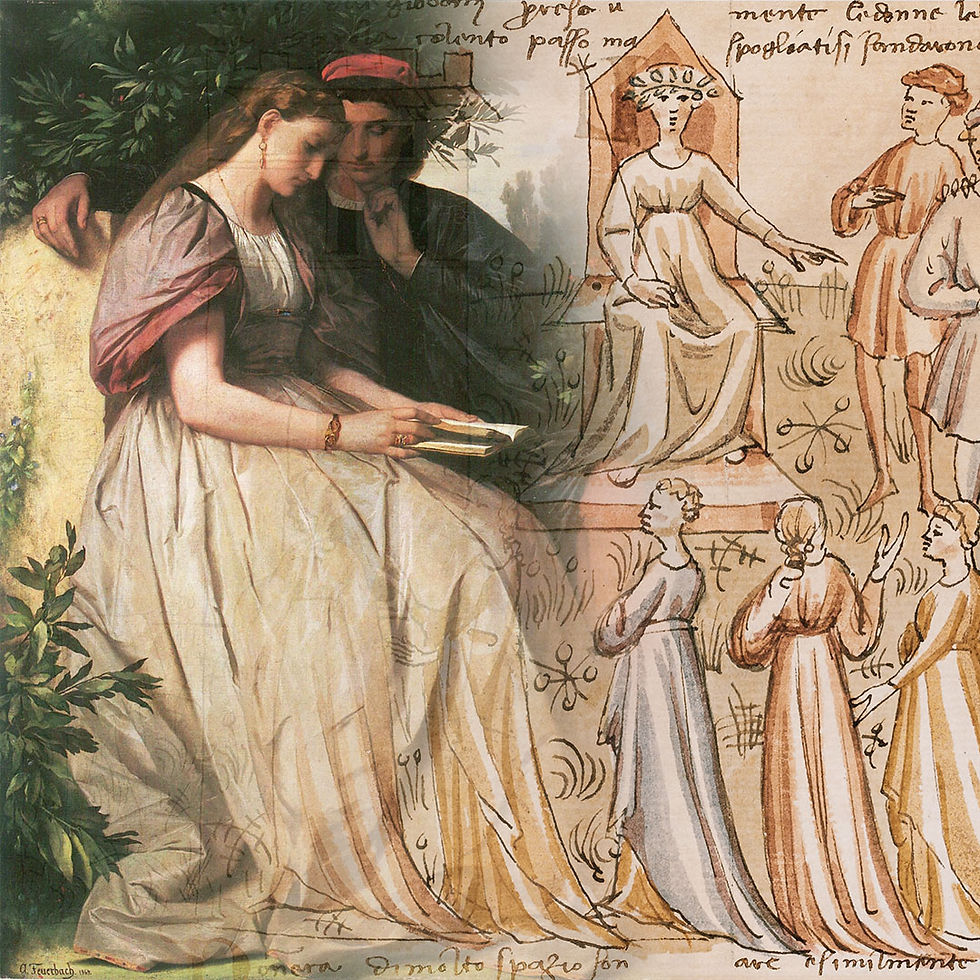A Bike for Boccaccio
- Palladian Routes
- Sep 14, 2021
- 2 min read
Updated: Oct 18, 2022
One of our Palladian E-bikes is called Fiammetta.

The first figure of this name that comes to mind for us is one of the characters from Boccaccio's Decameron who, in order to escape the wave of the plague, lock themselves up in a dwelling just outside the walls of Florence and, in order to pass the time, tell themselves novellas over the next ten days, as the title of the collection itself says, coming from the Greek, with the aim of entertaining themselves and passing the time.
The novellas told by Fiammetta often have love as a background: the King of France in love with the Marchioness of Monferrato, two friends who desire each other's wife, betrayals, Tancredi who kills his daughter's lover, ending up losing her too. And intertwined in the plot, jokes, deceptions, lies and greed. An alternation of twists and turns and unexpected reversals that recall the Shakespeare of whispered secrets and events that suffer the small choices of the characters in an unstoppable earthquake that ends in tragedy. Here the air is lighter, and the teaching is evident and direct: what to do and what not to do, in order to be morally acceptable individuals, even if it is evident the hidden smile of the narrator, the blushing cheeks and the thrill caused by the scandals just heard.
Fiammetta here is the absolute protagonist, she is in fact the one loved by Boccaccio, she is the messenger of the feelings and thoughts of the lovers.
To date, however, we do not know the identity of Fiammetta, although it is rumored that she was the natural daughter of King Roberto d'Angiò. The young Boccaccio met her in a church in Naples around 1330. He was immediately enraptured by her extraordinary beauty and brilliant personality and wrote her some verses. The relationship will never be fortunate and even if for a moment the blonde girl will seem to reciprocate the feeling of the Poet, it can never be said that love has blossomed between the two, and Boccaccio will remain only the bitter taste of what could have been and never was.
Comments